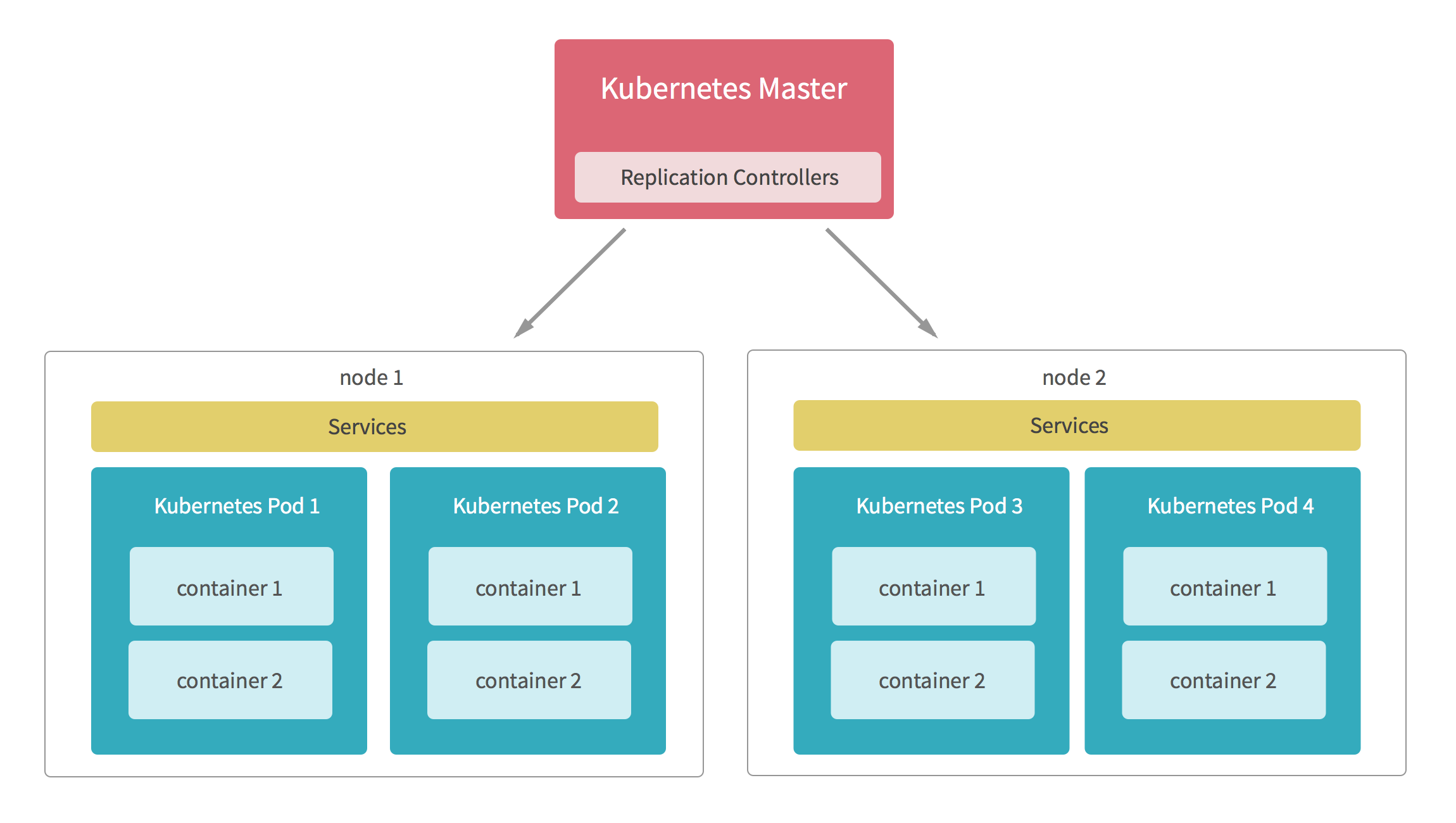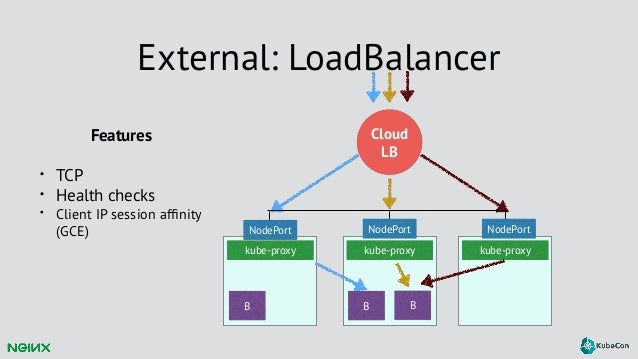- Fast
- Isolated (compare to single VM - multiple services)
- Light-weight
- Define environment with code
docker run hello-world
Run a Linux container
docker run -it --rm centos
cat /etc/redhat-release
exit
Run a Python container
docker run -it --rm python:alpine
print('hello')
exit()
docker run <IMAGE:TAG> <COMMAND>
docker run -it --rm centos ls
Pull an image
docker pull alpine
Develop a simple API
mkdir backend
cd backend
npm init
npm install --save express
# Program
cat << EOF > index.js
const os = require('os')
const crypto = require('crypto');
const express = require('express')
const app = express()
app.get('/', function (req, res) {
// CPU intensive operation
var hash = 'start ' + Math.random();
for (var i = 0; i < 25600; i++) {
hash = crypto.createHmac('sha256', '000').update(hash).digest('hex');
}
res.send(os.hostname());
})
app.listen(3000, function () {
console.log('Listening on port 3000!');
})
process.on('SIGTERM', function() {
process.exit(0);
});
process.on('SIGINT', function() {
process.exit(0);
});
EOFRun server
nodejs index.js
Access from browser
Create a Dockerfile
cat << EOF > Dockerfile
FROM node:8-alpine
COPY package.json /app/package.json
COPY index.js /app/index.js
RUN cd /app && npm install
CMD ["node", "/app/index.js"]
EOFBuild an image
docker build -t <NAME>-backend .
Run
docker run -it --rm -p 80:3000 <NAME>-backend
Run in background
docker run -d -p 80:3000 <NAME>-backend
View running containers
docker ps
View all containers
docker ps -a
Attach to running container
docker attach <CONTAINER_ID_OR_NAME>
Stop container
docker stop <CONTAINER_ID_OR_NAME>
Delete container
docker rm <CONTAINER_ID_OR_NAME>
A container can have multiple processes, but when PID 1 exits, container exits.
docker run -d --name alpine alpine top
docker exec -it alpine sh
ps
kill 1
If have time
Push image to GCR
# Tag image
docker tag <NAME>-backend us.gcr.io/docker-k8s-workshop/<NAME>-backend:1
# Push
gcloud docker -- push us.gcr.io/docker-k8s-workshop/<NAME>-backend:1- Distributed workload
- Resilient service, problem detection / recovery
- Rolling update / rollback
- Load balancing (Google Cloud Load Balancer)
- Service discovery (ClusterIP + DNS)
- Secret management
- Artifacts storage (GCR in this workshop)
- —
- Build + deploy pipeline
- HTTPS
- Monitoring
gcloud container clusters get-credentials workshop-cluster --zone us-east1-d --project docker-k8s-workshop
Show nodes
kubectl get nodes
---
apiVersion: apps/v1beta1
kind: Deployment
metadata:
name: <NAME>-backend
spec:
replicas: 1
template:
metadata:
labels:
app: <NAME>-backend
spec:
containers:
- name: <NAME>-backend
image: us.gcr.io/docker-k8s-workshop/<NAME>-backend:1
ports:
- containerPort: 8000Deploy!
kubectl apply -f kube.yaml
Check deployment just created
kubectl get deployments
Check Pods
kubectl get pods
Each pod has its own IP
kubectl get pods -o wide
Resize deployment (distributed workload)
spec:
replicas: 3Delete one pod (automatic recovery)
kubectl delete pod <POD_NAME>
---
apiVersion: v1
kind: Service
metadata:
name: <NAME>-backend
spec:
type: NodePort
selector:
app: <NAME>-backend
ports:
- name: <NAME>-backend-port
port: 3000
protocol: TCPCheck services
kubectl get services
---
apiVersion: extensions/v1beta1
kind: Ingress
metadata:
name: <NAME>-backend
spec:
backend:
serviceName: <NAME>-backend
servicePort: <NAME>-backend-portCheck Ingress
kubectl get ingress
Access from browser.
cat << EOF > index.js
const os = require('os')
const crypto = require('crypto');
const express = require('express')
const app = express()
app.get('/', function (req, res) {
// CPU intensive operation
var hash = 'start ' + Math.random();
for (var i = 0; i < 25600; i++) {
hash = crypto.createHmac('sha256', '000').update(hash).digest('hex');
}
res.send('[v2] ' + os.hostname());
})
app.listen(3000, function () {
console.log('Listening on port 3000!');
})
process.on('SIGTERM', function() {
process.exit(0);
});
process.on('SIGINT', function() {
process.exit(0);
});
EOF
# Build
docker build -t <NAME>-backend .
# Tag
docker tag <NAME>-backend us.gcr.io/docker-k8s-workshop/<NAME>-backend:2
# Push
gcloud docker -- push us.gcr.io/docker-k8s-workshop/<NAME>-backend:1View current Pods
kubectl get pods
Update service
kubectl apply -f kube.yaml
View Pods again
kubectl get pods
kubectl rollout undo deployment <NAME>-backend
View result in browser
DNS Pods and Services - Kubernetes
my-svc.my-namespace.svc.cluster.local
Pod-level autoscaling: HorizontalPodAutoscaler scales the number of Pods based on observed CPU utilization.
---
apiVersion: autoscaling/v1
kind: HorizontalPodAutoscaler
metadata:
name: <NAME>-backend
spec:
scaleTargetRef:
apiVersion: apps/v1beta1
kind: Deployment
name: <NAME>-backend
minReplicas: 1
maxReplicas: 10
targetCPUUtilizationPercentage: 50Node-level autoscaling: GKE supports node-level autoscaling when current node pools can’t satisfy all Pod resource requests.
spec:
containers:
resources:
requests:
cpu: 100m
memory: 200Mi spec:
containers:
livenessProbe:
httpGet:
path: /
port: 3000
initialDelaySeconds: 5
periodSeconds: 10
timeoutSeconds: 5
successThreshold: 1
failureThreshold: 3 # 30 seconds
readinessProbe:
httpGet:
path: /
port: 3000
initialDelaySeconds: 5
periodSeconds: 5
timeoutSeconds: 2
successThreshold: 1
failureThreshold: 2 # 10 seconds template:
spec:
affinity:
podAntiAffinity:
preferredDuringSchedulingIgnoredDuringExecution:
- weight: 100
podAffinityTerm:
labelSelector:
matchExpressions:
- key: app
operator: In
values:
- <NAME>-backend
topologyKey: kubernetes.io/hostname



Thanks a lot~